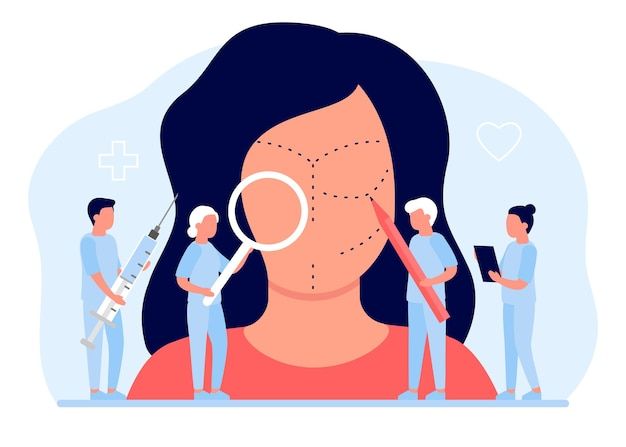Plastic surgery has become increasingly normalized in today’s society with more and more people (especially celebrities) opting for cosmetic procedures to alter their appearance. Many celebrities you see on social media have gotten lip injections, botox, and/or other forms of plastic surgery.
What was once done in secret and was taboo to talk about has recently become the norm as celebrities and influencers openly discuss surgeries and procedures that they have done, and plan to get done.
While there are valid reasons for individuals to undergo plastic surgery, such as correcting physical deformities or enhancing their overall well-being, the normalization of these procedures can have detrimental effects on self-esteem.
Standardizing plastic surgery promotes many unrealistic beauty standards that others feel they need to meet.
With social media platforms also filled with filtered and edited images, it is easy for individuals to compare themselves to these idealized versions of beauty.
As plastic surgery becomes more common and accepted by the public, people may feel pressured to conform to these unrealistic standards, believing that they must undergo procedures to achieve the same level of attractiveness.
This can lead to a cycle of dissatisfaction with one’s appearance, as the standards for beauty are constantly changing and shifting.
The normalization of plastic surgery can undermine natural beauty and self-acceptance.
By promoting the idea that altering one’s appearance is the solution to feelings of inadequacy, society sends a message that natural features are not good enough or worthy of acceptance.
This can create feelings of self-doubt, low esteem, and other negative feelings relating to mental health, as individuals may internalize the belief that they need to change themselves in order to be considered beautiful or valuable, which is not true.
When someone undergoes a cosmetic procedure, their self-esteem may temporarily improve. However, this improvement is often short-lived, as the underlying issues that caused the dissatisfaction with their appearance in the first place are not adequately addressed, and can ultimately affect mental health negatively.
This can lead to a reliance on plastic surgery as a means of self-esteem boost, creating a dangerous cycle of dependency on external validation.
There’s also the risk of complications during the process, which can lead to permanent disfiguration, pain, and even paralysis.
Of course, it needs to be addressed that plastic surgery can have positive impacts on individuals’ lives, especially when it comes to reconstructive procedures or helping individuals regain their self-confidence. Some forms of plastic surgeries can change lifestyles, like breast reduction surgery, or deviated septum correction, which are common surgeries done.
It is the normalization of plastic surgery as a solution to self-esteem issues that can have far-reaching negative consequences.
The de-stigmatization of cosmetic surgeries may not be a bad thing in certain circumstances, and it is a good thing that people are feeling more comfortable in their own skin, even if it means making a few changes.
However, the overwhelming regularity of plastic surgery and “perfect” people on social media is contorting the idea of beauty and changing the way people feel about themselves.

